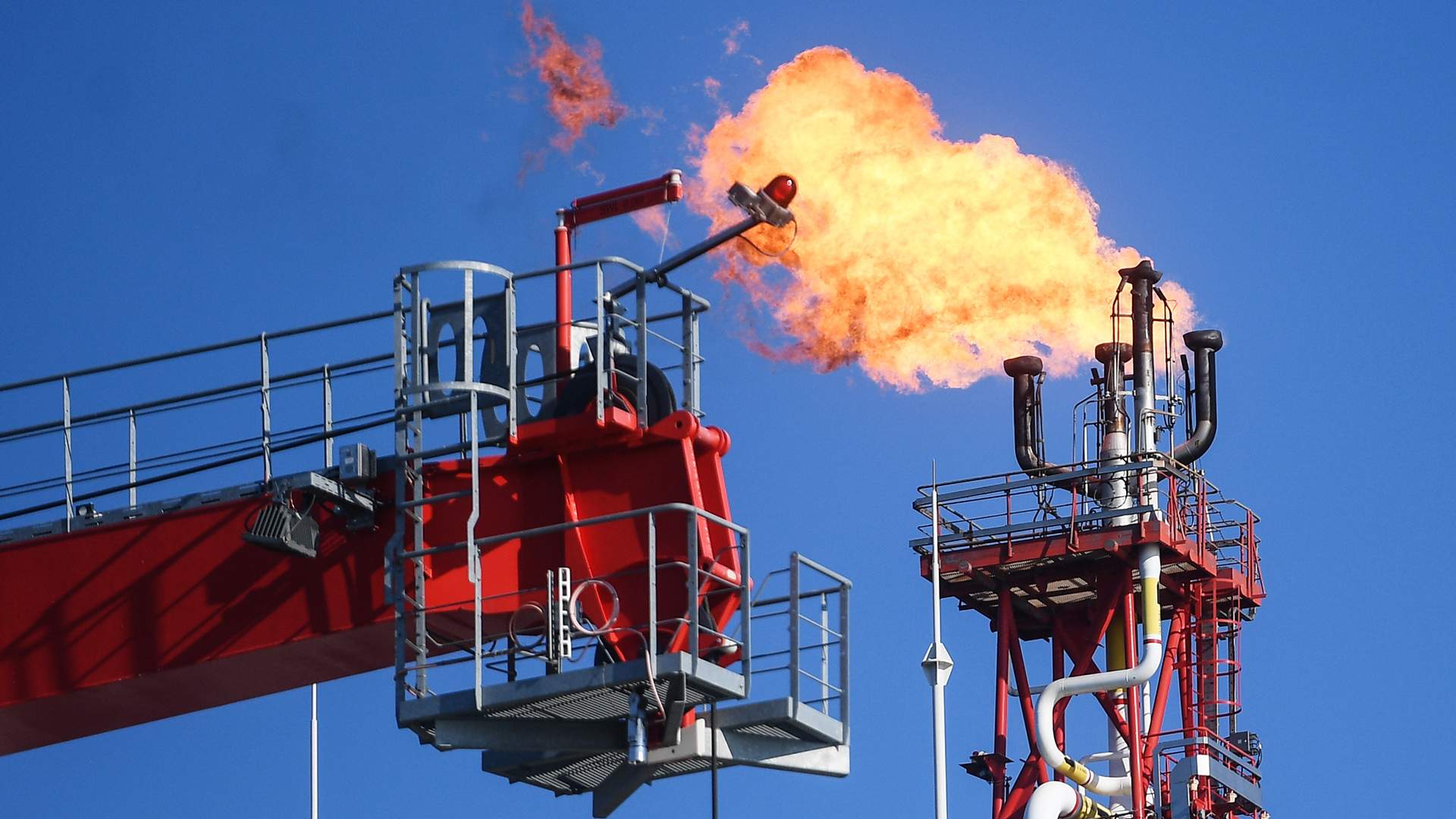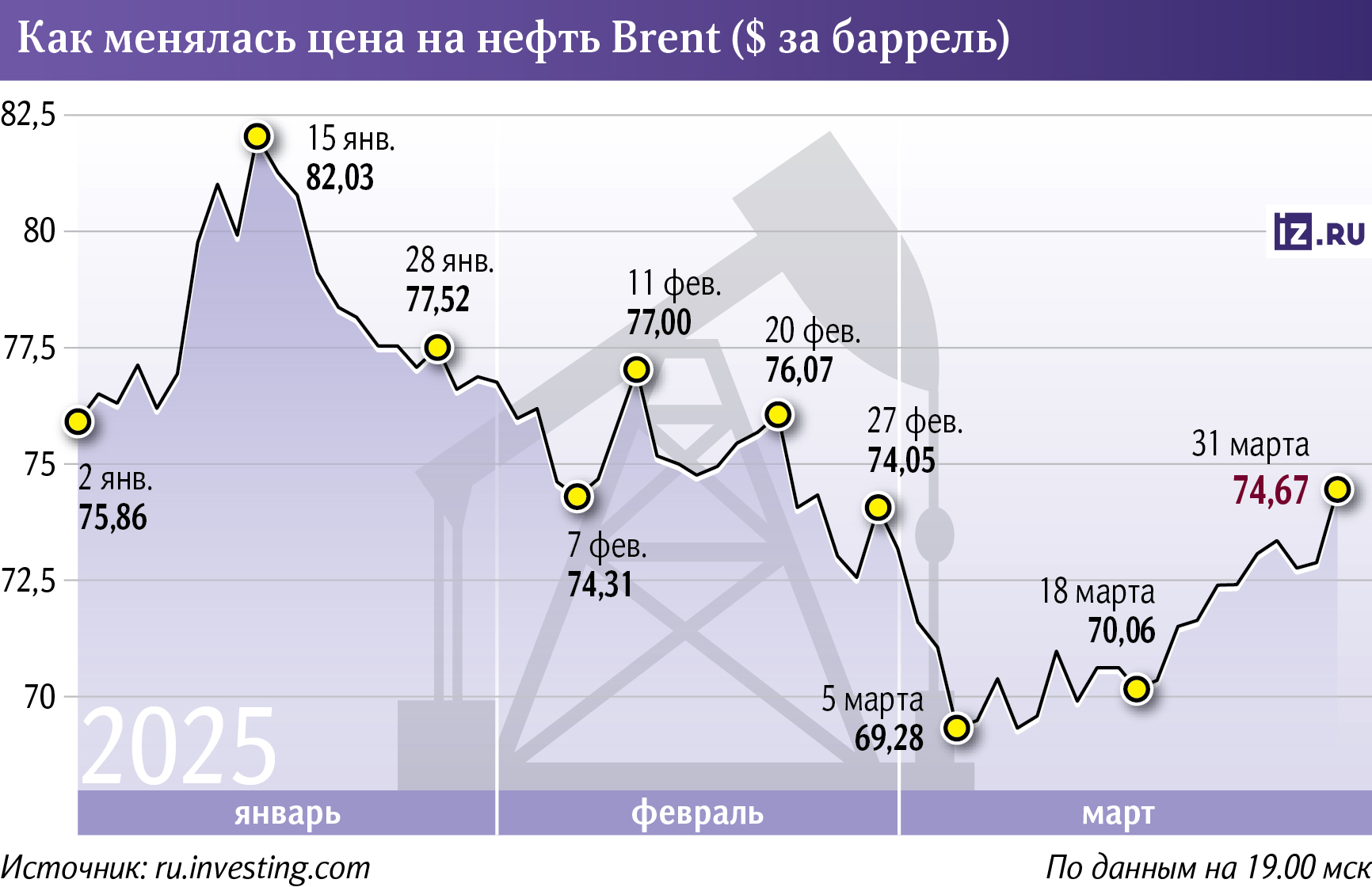The block says: OPEC+ may postpone the increase in oil production

Most OPEC+ members will not start increasing oil production from April, despite the fact that the alliance members agreed on such a decision in early March. As such, the market should not expect an increase in supply in the coming months. In addition, against the background of trade wars and the resolution of geopolitical conflicts, oil surpluses may begin to grow in the world, which will lead to lower prices for raw materials. Therefore, experts do not rule out that the OPEC+ monitoring committee, which will meet on April 5, will make its new recommendations. They have repeatedly stressed that the increase can be suspended or canceled depending on market conditions.
The decision on a phased increase in oil production
The decision to gradually increase oil production from April this year was made back in December 2024 and confirmed during an online meeting in March. The average sales volume will be 2.2 million barrels per day.
"Accordingly, the gradual increase may be suspended or cancelled depending on market conditions. This flexibility will allow the group to continue to maintain the stability of the oil market," the cartel said in a press release.
The decision of the alliance members surprised market participants somewhat, because it was made against the background of calls from American President Donald Trump to increase shale oil production by 3-4 million barrels per day as soon as possible. According to the US Department of Energy, in March 2025 it was more than 13.5 million barrels per day. The United States is a leader in fuel production today. Russia and Saudi Arabia currently produce about 9 million barrels per day.
— There is clearly a crisis in OPEC+. The member countries of the alliance have increasingly begun to violate their obligations, while states outside the alliance are increasing production and conquering new markets for themselves. Therefore, it was decided to increase production de jure. In fact, the offending countries will have to reduce production for several more months to compensate for their production growth over the past period," said Ekaterina Kosareva, Managing Partner of WMT Consult.
She recalled that at the end of March, OPEC+ published a new plan to reduce production and compensate for overproduction of oil, which provides for a monthly reduction in production by 189-435 thousand barrels per day.
According to the schedule, Russia will compensate for oil overproduction by 706,000 barrels per day from March to September 2025. Iraq will account for the largest amount of compensation — 1,954 million barrels per day. Kazakhstan compensates for 908 thousand barrels, the United Arab Emirates — 365 thousand, Kuwait — 141 thousand, Oman — 99 thousand, Saudi Arabia — 30 thousand barrels.
What will happen to oil prices
Nevertheless, despite the actual reduction in production, high oil prices will not have to wait. With the coming to power in the United States of Donald Trump, the market has been shaken up. Trade wars and geopolitical activity force countries to work exclusively in their own interests today. As previously reported by the Financial Times, Saudi Arabia intends to reduce costs for major projects due to the falling cost of raw materials. The publication notes that current oil prices in the region of $ 70 per barrel are significantly below the level necessary to balance the kingdom's budget.
The abandonment of production restrictions starting in April is also associated with violations of restrictions by other countries and falling commodity prices. Experts expect that the cost will continue to decline at least until the end of the year.
— In general, we expect a gradual decline in oil prices, as there is a supply reserve on the market, and in the coming years, production growth may be shown by countries outside OPEC+. Our forecast for 2025 assumes an 11% decrease in the average cost of the Brent brand year-on—year, to $71 per barrel, and the Urals brand in Russian ports may fall in price to $58-60 per barrel," says Andrey Polishchuk, senior analyst at Euler Analytical Technologies.
Valery Andrianov, an associate professor at the Financial University under the Government of the Russian Federation, agrees with him.
— I think that we should not expect significant shocks so far and the oil price will remain in the range of $ 70-75 per barrel, — the expert noted.
However, according to him, theoretically, the introduction of secondary sanctions against buyers of Russian oil could indeed have a very negative impact on export volumes.
— This was clearly demonstrated by the sanctions against gray fleet tankers imposed by Joe Biden in the last days of his presidency. Many companies and countries are afraid to purchase oil transported by tankers from the sanctions list, which has led to problems in the logistics of domestic raw materials. Accordingly, buyers of Russian raw materials would not be able to ignore a complete ban on their purchase from Washington under the threat of 25-50 percent duties," said Valery Andrianov.
In his opinion, such a scenario is unlikely to be implemented in practice.
— Russia's share in the global market is too large to block our exports without serious consequences for the entire global economy. At the first stage, this would lead to a sharp increase in quotations, at least to $ 100 per barrel. Later, as a result of the collapse of the OPEC + deal, and without Russia it is not viable, additional and uncontrolled volumes of raw materials would splash onto the market, which would lead, on the contrary, to falling prices and, possibly, severe consequences for American production. In other words, the market would be completely unbalanced, which is not in the interests of the United States itself in the first place," the expert added.
At the same time, he noted: so far, Trump's statements about the imposition of duties on Russian oil look "like a PR trick and an unrealizable threat."
As for the US sanctions pressure on Venezuelan and Iranian oil, according to Ekaterina Kosareva, it is unlikely to have a serious impact on the market.
— Venezuelan oil exports amount to about 500,000 barrels per day, while Iranian oil exports amount to about 1.8 million barrels. And this is despite the fact that global oil consumption is 106.6 million barrels per day. In addition, Chevron, which is responsible for 25% of Venezuelan production and a third of its exports, was allowed to work there until the end of May. As for Iran, it has been living under sanctions for decades and is coping with this pressure. Recently, for example, Tehran announced an increase in its production by April from 3.4 million to 3.85 million barrels, the expert said.
New recommendations of the OPEC+ Monitoring Committee
Meanwhile, the OPEC+ monitoring committee will meet on April 5. He will have to make his recommendations on the future mining policy of the alliance, taking into account all the nuances of the market.
According to Ivan Timonin, head of the Implementation projects, in the current situation, the most realistic scenario seems to be the actual fulfillment of the previously outlined plans of the OPEC+ member countries, since the state of the global liquid hydrocarbon market today is more favorable for a gradual increase in production.
In turn, Alexander Frolov, Deputy Director General of the National Energy Institute, noted that the planned increase in April is extremely modest. In fact, against the background of global consumption, it can be considered a statistical error.
— It cannot have a real impact on the balance of supply and demand. Oversupply is just a risk that has been discussed over the past year and a half. If we discard the information campaign that inflates hysteria around this risk, then the OPEC+ production growth does not threaten the market. Especially considering that the countries of the agreement may at any time abandon the restoration of production if they see a threat to stability. By the way, Russia, most likely, will not use the right to restore production in order to compensate for overproduction in certain periods," the source believes.
Tamara Safonova, Director General of the Independent Analytical Agency for the Oil and Gas Sector (NAANS-MEDIA), agrees with her colleague. In her opinion, at the moment there are no prerequisites for OPEC+ countries to abandon the decision, and at the same time as the additional restrictions are lifted, the alliance members will fulfill the schedule for compensating for overproduction of raw materials.
However, the expert noted that there is now a change in bearish sentiment related to the statements of the US administration regarding plans for an increase in American production and a collapse in global fuel prices.
— American business is not interested in increasing production capacity at any cost, and previously announced government subsidies may not cover the financial losses of oil companies in the event of a collapse in oil prices. Thus, the interests of the producers themselves in terms of increasing the cost of strategic energy products coincide," Tamara Safonova added.
At the same time, lowering prices below the $70 mark will require a flexible revision of the adopted strategy on the part of OPEC+, she concluded.
Переведено сервисом «Яндекс Переводчик»











